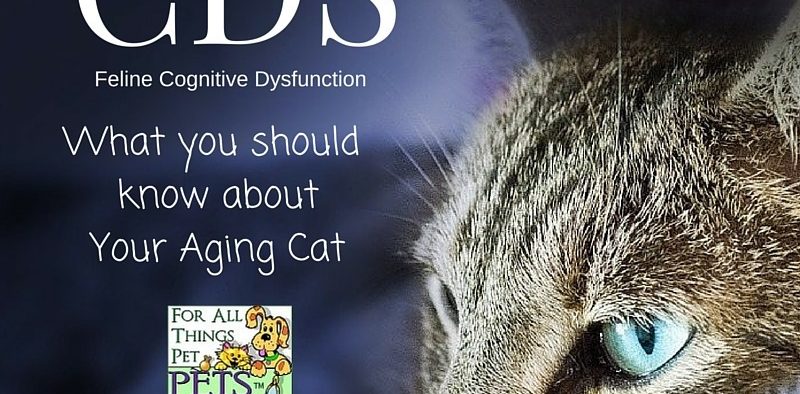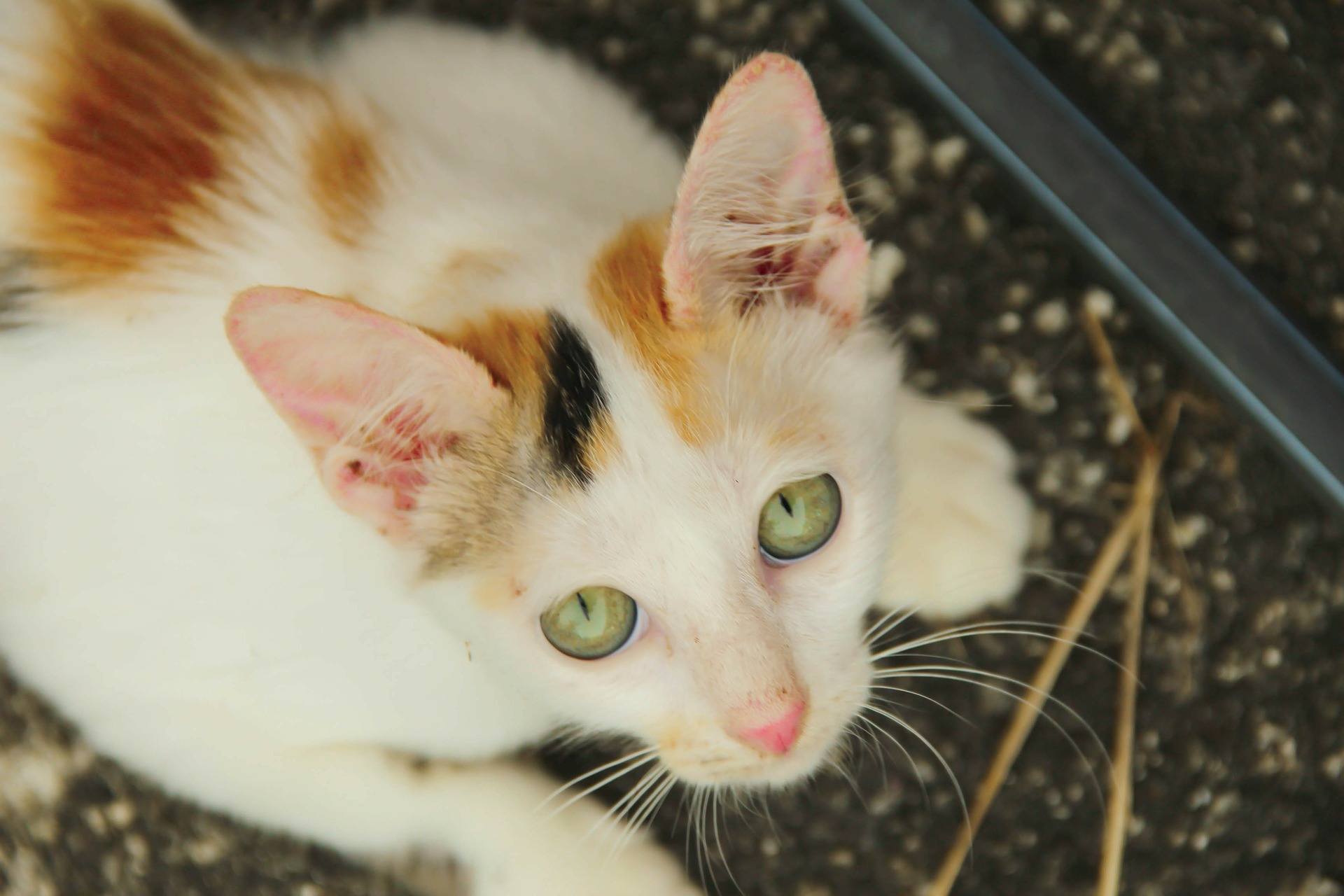An In-depth Look at Feline Cognitive Dysfunction
Share

[heading style=”1″ color=”#ff9933″ style_color=”#ff9933″]Causes of CDS[/heading]
We really don’t know the exact causes of CDS, but there are several possible factors being evaluated. “There is a lot of data recently for canines but there doesn’t seem to be much on felines,” said Plummer. “This problem appears to be much more prevalent in dogs than in cats, and in my experience we are much more likely to find some underlying medical condition causing behavioral issues in cats.”

The environment:
There is reason to believe that our environment may impact the progression of CDS.
“Air pollution and excessive noise may predispose to…cognitive dysfunction, over time.” says veterinary nursing lecturer Julie Cory, of the College of Animal Welfare in Huntington, England. “Neuroinflammation associated [with these things] can lead to oxidative damage and the development of amyloid plaque” [excess protein found in brain with CDS]. Journal of Vet. Beh., (2013), 8, pp 291-301, Elsevier

Medical Conditions:
“Abnormal behavior like CDS can be caused by tissue inflammation, hyperthyroidism, kidney disease, tumors, trauma, or metabolic conditions,” explains Dr. Alexander de Lahunta, emeritus Professor of Anatomy at Cornell’s College of Vet. Med. “If magnetic resonance imaging (MRI) and analysis of cerebrospinal fluid fail to reveal a physical problem in the brain, then the problem is something that is probably best treated by an animal behaviorist…”
[heading style=”1″ color=”#ff9933″ style_color=”#ff9933″]Diagnosis by exclusion[/heading]
Since symptoms can be very difficult to sort out when it comes to identifying whether your cat has CDS or is just experiencing normal aging. In most cases, the diagnoses is made by exclusion (the fact that nothing else fits the symptoms). These include:
• Aimlessness. Noodles can wander in a way he didn’t before, with a gait that’s less purposeful. He may saunter to places he usually avoided. You could find him staring, and it’s not his usual ‘Don’t you see that wee speck?’ look.
• Memory Changes: Your cat suddenly forgets where the food bowl is, or can’t find his way to the litter-box as often. He changes the way he responds to you calling his name, letting him know dinner is ready, or failing to greet you when you walk in the door.
• Decreased Ability to Learn: You know her normal learning curve; but now she doesn’t seem to have any ability to learn tricks or remember old ones.
• Yowling or Crying: Suddenly your cat is making unusual noises, perhaps yowls in a plaintive tone or takes up a new habit of anxious chattering.
• Mood Changes: Your cat may suddenly become cantankerous, even aggressive, and it isn’t because of physical discomfort.
• Change in Sleeping Habits: Your cat used to sleep 18 hours a day and only woke up for evening playtime and feeding time. These days, he’s up longer than usual, wanders the house at odd hours. The reverse may also be true – your normally active cat is suddenly sleeping the day away. Either way, your cat’s sleeping cycle has changed.
• Not Interested: Your cat may seem genuinely “disinterested” in anything. He no longer likes his evening playtime, doesn’t want to take a walk, won’t jump into your lap, etc.
• Change in Eating Habits: She’s no longer interested in food that she used to love, not even her favorite treats. There’s less gusto.
• Emotional Changes: He can become needy, especially at night. Conversely, he can act as if he doesn’t know someone he knew well at one time.
• Grooming: He doesn’t groom himself, such as his coat, eyes or ears as carefully as he used to. He may become matted or unable to clean himself.
There’s another symptom that’s harder to define. I’ve seen it in my 16 year old, Grace. She’s somehow less focused, even a little faraway. She was never a ‘slow-blinker; now she looks away sooner than she used to. Breaks my heart.
[load_module id=”582″]





